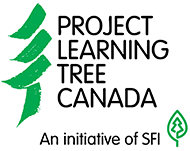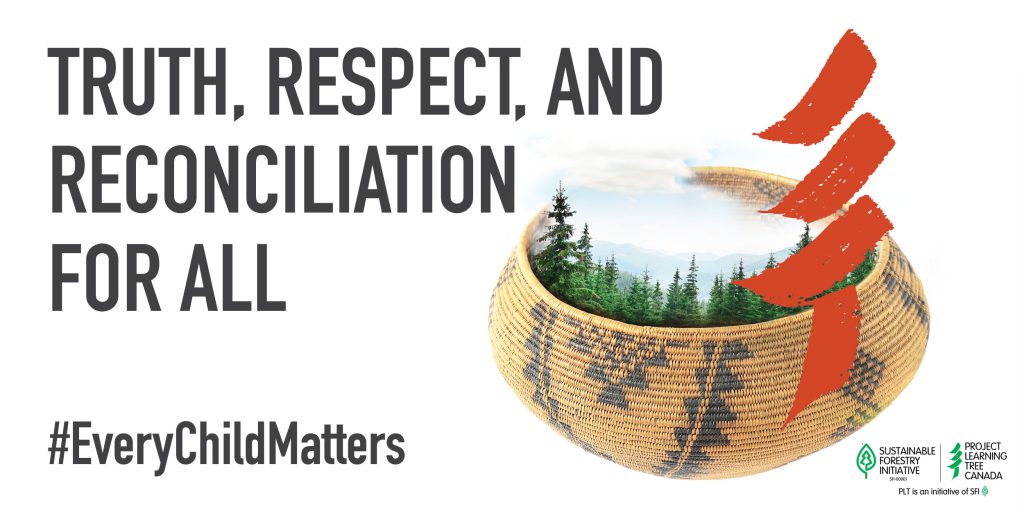News
Truth and Reconciliation Week 2023September 27, 2023
At the end of September, Canada commemorates Truth and Reconciliation Week 2023, culminating in the National Day for Truth and Reconciliation and Orange Shirt Day on September 30. It’s estimated that over 150,000 Indigenous children were taken from their homes and sent to residential schools between 1831 and 1996. At these schools, children were taught to hate their Indigenous languages, cultures, traditions, and ancestral connections to the land. Many suffered physical, mental, emotional, sexual, and verbal abuse. Many children died or went missing. So far, The National Centre for Truth and Reconciliation has documented over 4,000 children who died at residential schools, but it is estimated that there are more. The residential school system resulted in a legacy of intergenerational trauma and poverty that remains felt by many Indigenous communities today. Eugene Arcand from Muskeg Lake Cree Nation shared his experience at and beyond residential school. We encourage everyone to spend more time furthering their learning. You can also review our past articles for more information:
Mental health supportIndigenous People can call The Hope for Wellness Help Line 24 hours a day, seven days a week, for counselling and crisis intervention. Call 1-855-242-3310 or chat online. Truth and Reconciliation in the Forest and Conservation SectorResidential schools were one part of a larger system of colonization (for example, the Doctrine of Discovery) that sought to separate Indigenous Peoples from their lands and cultures in order to create space for non-Indigenous settlement and economic development. This includes the forest and conservation sectors. As an organization working within a sector that has benefitted so greatly from colonization and Indigenous Peoples’ displacement from their territories, it is vital that we consciously contribute to reconciliation efforts today that support the rebuilding of those place-based relationships and the advancement of Indigenous Peoples’ self-determined priorities and visions for the future, as directed by Article 3 of the United Nations Declaration on the Rights of Indigenous Peoples (UNDRIP). Our mission to advance sustainability through forest-focused collaboration must include Indigenous communities who stewarded the land well before settlers arrived, using time-honoured forest management practices like forest gardens and prescribed or cultural burns. PLT Canada is an initiative of the Sustainable Forestry Initiative (SFI). SFI’s Indigenous Relations Commitment firmly recognizes the enduring leadership of Indigenous Peoples with respect to sustainable forest management, as well as their unique place-based rights and forest related knowledges that make them essential partners in any forest-focused collaboration. It also commits SFI to adopting the principles of the UNDRIP as a framework for policy, program, and relationship development. UNDRIP and the Truth and Reconciliation Commission’s Calls to ActionUNDRIP and the Truth and Reconciliation Commission’s (TRC’s) Calls to Action provide frameworks and actions we all can take to advance reconciliation and Indigenous Peoples’ unique rights and priorities. Below, we have a highlighted a few items that are particularly relevant to the forest and conservation sector and some of the actions we are taking (and your organization could take as well!). UNDRIPArticle 18: Indigenous peoples have the right to participate in decision-making in matters which would affect their rights, through representatives chosen by themselves in accordance with their own procedures, as well as to maintain and develop their own indigenous decision-making institutions.
Article 29.1: Indigenous peoples have the right to the conservation and protection of the environment and the productive capacity of their lands or territories and resources. States shall establish and implement assistance programmes for Indigenous peoples for such conservation and protection, without discrimination.
Article 32 1. Indigenous peoples have the right to determine and develop priorities and strategies for the development or use of their lands or territories and other resources.
TRC Calls to Action7. We call upon the federal government to develop with Aboriginal groups a joint strategy to eliminate educational and employment gaps between Aboriginal and non-Aboriginal Canadians.
92.i. Commit to meaningful consultation, building respectful relationships, and obtaining the free, prior, and informed consent of Indigenous peoples before proceeding with economic development projects.
92.ii. Ensure that Aboriginal peoples have equitable access to jobs, training, and education opportunities in the corporate sector, and that Aboriginal communities gain long-term sustainable benefits from economic development projects.
92.iii. Provide education for management and staff on the history of Aboriginal peoples, including the history and legacy of residential schools, the United Nations Declaration on the Rights of Indigenous Peoples, Treaties and Aboriginal rights, Indigenous law, and Aboriginal–Crown relations. This will require skills based training in intercultural competency, conflict resolution, human rights, and anti-racism.
|



